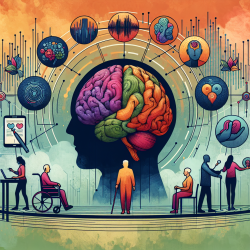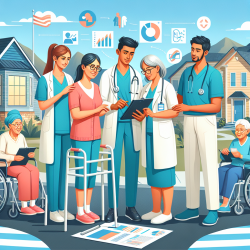Introduction
As a practitioner in the field of speech-language pathology, you might wonder what insights a book on clinical legal education could offer. However, the principles of clinical education and its focus on social justice can provide valuable lessons applicable across disciplines. "The Global Clinical Movement: Educating Lawyers for Social Justice," edited by Frank S. Bloch, is a pivotal work that explores how clinical legal education can drive social justice and professional development. This blog will delve into the key takeaways from this book and how they can enhance your practice, particularly in the context of online therapy services for schools.
Understanding the Global Clinical Movement
The Global Clinical Movement emphasizes three core aspects of clinical legal education: its global reach, its mission for social justice, and its evolution into a worldwide movement. These aspects are critical for practitioners in any field who aim to create meaningful change. By adopting a global perspective, you can better understand diverse challenges and collaborate on innovative solutions.
Implementing Clinical Education Insights
Clinical legal education's focus on experiential learning is a key takeaway for improving practice in speech-language pathology. Here are some strategies to consider:
- Experiential Learning: Incorporate hands-on experiences in your therapy sessions. Use role-playing and simulations to help children practice communication skills in real-world scenarios.
- Social Justice Mission: Advocate for equitable access to therapy services. Ensure that your practice addresses the needs of underserved communities and works towards reducing disparities in access to care.
- Collaboration and Networking: Engage with other professionals and organizations to share resources and strategies. Building a network can enhance your practice's impact and reach.
Challenges and Opportunities
The book highlights several challenges that clinical legal education faces, such as regulatory barriers and the need for institutional support. These challenges resonate with those in the field of speech-language pathology, particularly in the context of online therapy services. Here are some ways to address these challenges:
- Advocacy for Policy Change: Work with professional organizations to advocate for policies that support online therapy and address regulatory barriers.
- Professional Development: Stay informed about the latest research and best practices in both clinical education and online therapy. Continuous learning can help you adapt to changing needs and technologies.
- Community Engagement: Involve parents, teachers, and other stakeholders in the therapy process. Their input can provide valuable insights and support for your practice.
Encouraging Further Research
The Global Clinical Movement calls for ongoing research to address contemporary issues and shape the future of clinical education. For practitioners in speech-language pathology, this means staying engaged with current research and contributing to the body of knowledge. Consider conducting studies on the effectiveness of online therapy interventions or exploring new methods for enhancing communication skills in children.
Conclusion
By integrating the insights from "The Global Clinical Movement: Educating Lawyers for Social Justice" into your practice, you can enhance your skills and contribute to better outcomes for children. Embrace the principles of experiential learning, social justice, and collaboration to drive positive change in your field.
To read the original research paper, please follow this link: Frank S Bloch (ed): The Global Clinical Movement: Educating Lawyers for Social Justice.










